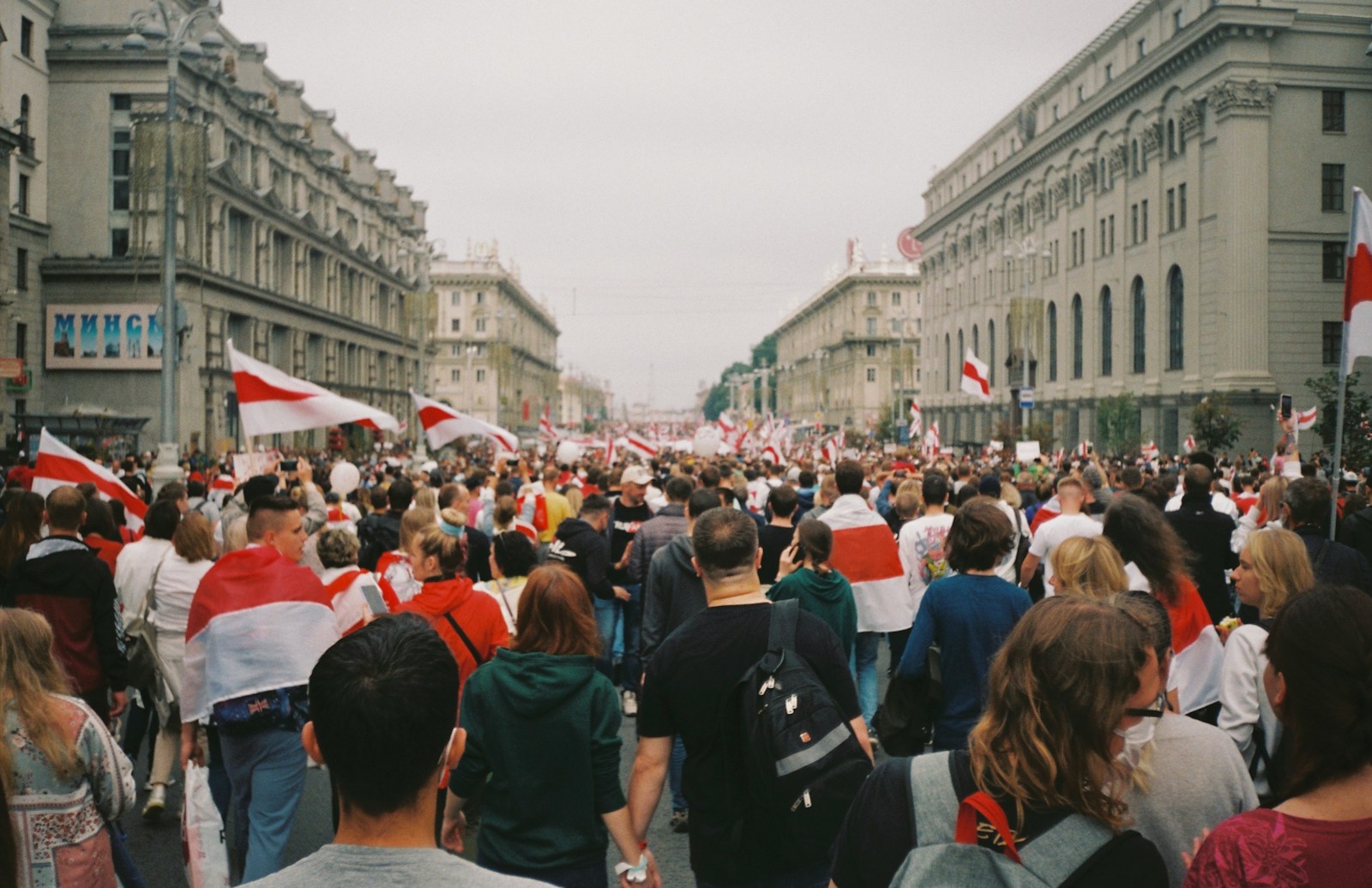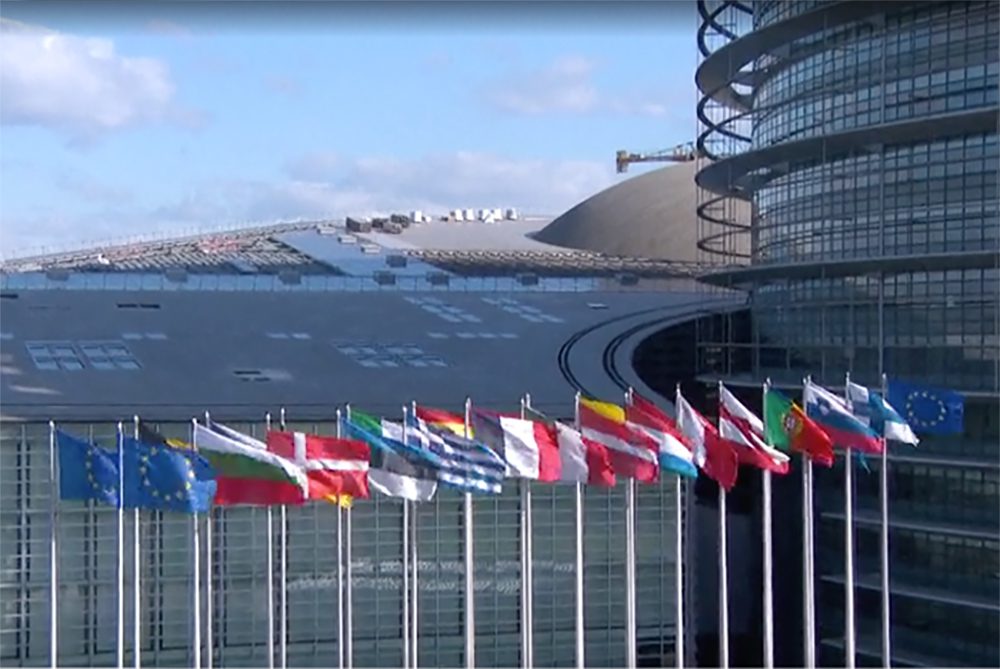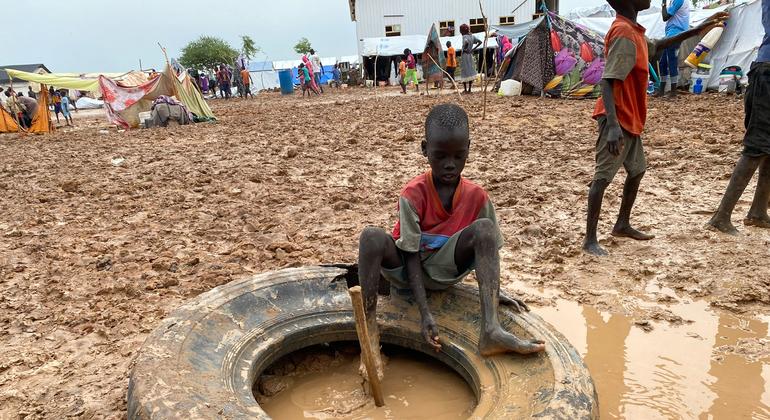When tensions erupted in East Jerusalem in April 2021 at the beginning of the holy Muslim month of Ramadan, daily clashes involving Palestinians, Israeli settlers and Israeli forces led to spiraling violence and death. In response, the Human Rights Council set up a top panel of independent rights experts to investigate reports of violations of international law.
Today, more than ever amid the ongoing war in Gaza, this independent commission of inquiry has its work cut out. We took a closer look at its role, speaking to its chair, former UN Human Rights Commissioner and judge Navi Pillay, who provided fresh insight into the developing situation and what’s happening in the field of international law.
“Every country and every member of the United Nations is equal in terms of their obligations to observe international law,” she told UN News.
An injured man is helped by rescue workers in Ramallah, in the West Bank, in May 2021. (file)
Background to the ‘Day of Rage’
In 2021, the imminent threat of forced eviction of Palestinian families from their homes – initiated by Israeli settler organisations – provoked unrest in and around the Old City of Jerusalem.
This later extended to the wider occupied West Bank, culminating in a “Day of Rage” on 14 May 2021, when Israeli forces killed 10 Palestinians, the highest number recorded at that time by the UN in a single day.
These tragic events led the Human Rights Council to “urgently establish an ongoing, independent, international commission of inquiry to investigate in the Occupied Palestinian Territory, including East Jerusalem, and in Israel, all alleged violations of international humanitarian law and abuses of international human rights law leading up and since 13 April 2021”.
A tower block lies in ruins in Gaza City following an Israeli air strike in May 2021. (file)
Expanded complicity probe
Three years on, the Commission’s mandate has become broader, particularly since Hamas-led terror attacks on southern Israel on 7 October, which killed some 1,200 people and left more than 250 taken hostage prompting the intense bombardment of Gaza by Israeli Defense Forces.
To date, more than 34,500 Palestinians have been killed in Gaza and over 77,700 Palestinians injured, according to the enclave’s health authorities, while deadly clashes have resumed in the occupied West Bank.
The Commission’s mandate now includes additional issues, including reporting on States that transfer military and other weapons to Israel, raising questions about potential complicity in violations of international law.
Its chair brings years of experience. Ms. Pillay previously served as the first non-white woman judge of the High Court of South Africa, as a judge on the International Criminal Court and President of the International Criminal Tribunal for Rwanda.
Machetes and bullets in Gisenyi, Rwanda, 26 July 1994.
Rwanda recall
Ms. Pillay said a unique aspect of the current situation in the Middle East is that evidence of war crimes is being gathered in real time, meaning that the world is conscious of the events unfolding.
“I have experience of apartheid era crimes in my own country,” she said. “I served as a judge and president of the Rwanda Tribunal. The Rwandan genocide occurred over 100 days and the world didn’t even know that it was happening. So, in the courtroom, we had to rely very much on recollections of what had happened.”
She said that’s not the case with the ongoing situation in Gaza.
“Here, things are very different, and that’s why it’s so much more shocking,” she insisted.
Navi Pillay, Chair of the Commission of Inquiry on the Occupied Palestinian Territory.
First to call for a ceasefire
Nobody could have predicted what happened on 7 October and what has followed, the rights expert continued, noting that the Commission was “the first” on 10 October to issue a statement calling for a cessation of hostilities.
This was “long before other organs of the UN spoke up”, she said, “long before the political organs of the UN reacted. Even now, we have the Security Council resolution, the last one calling for a ceasefire, and yet the United States representative feels that resolution does not have any validity.”
It’s disturbing, she continued, when one country continues to violate international law with the help of powerful States who say they support human rights.
“It’s very disturbing if one country gets away with that.”
Suggested caption: Large parts of Gaza, following seven months of Israeli bombardment, stand in ruins in May 2024.
Large parts of Gaza, following seven months of Israeli bombardment, stand in ruins in May 2024.
Growing need for the rule of law
The veteran human rights expert believes that there is a resurgence of – and a growing need for – the rule of law, a trend highlighted by an unprecedented number of applications before the International Court of Justice (ICJ) since its creation in 1945.
She said South Africa’s recent petition to the ICJ alleging that Israel’s actions in Gaza violate the Genocide Convention signals a significant development in the application of universal jurisdiction. It also marks the first time that a third country has brought an application to the ICJ, she noted.
“How come it’s only now that the occupation itself is being challenged, that the ICJ had not been asked to give legal advice on the lawfulness of the occupation itself and [on] the responsibilities of States towards an unlawful endeavour?” Ms. Pillay asked.
Destruction in northern Gaza in March 2024. (file)
Surge of genocide allegations
“The call to rely on the rule of law has been there a long time,” she said. “I see now that we have a surge of this – countries bringing genocide allegations against other countries because of their military support. We have not seen this before and questioning the lawfulness of the occupation [is] also new, and I hope that that trend spreads.”
Earlier this month, Nicaragua brought a case to the UN’s top court to stop German military and other aid to Israel, alleging that it was enabling acts of genocide and violations of international humanitarian law in Gaza. The court ultimately rejected the request.
“Israel would not have been able to continue with this level of actions against Palestinians [and] violations of Palestinian rights had they not had the help of other States in terms of military aid,” Ms. Pillay said.
Above all, she highlighted, is the obligation incumbent on all nations to uphold international law.















